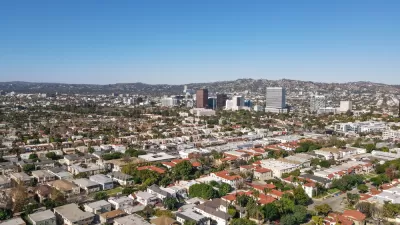Urban Planning has become increasingly complex with the rise of big data, inflating costs, diverging politics, and the advent of new technologies. To work with all these elements requires an inclusive approach to produce a useful outcome.
After spending hundreds of hours working with community groups, holding countless meetings, and creating designs for a new project, it is absolutely crushing to find that project either completely rejected or modified so much that it can't function.
Author Mitchell Sutika-Sipus argues that this common experience can be remedied by building flexibility into our planning proposals, using what he calls the "Integrated Planning Process." He describes this process as a way to map and align different variables to "reveal to stakeholders and participants what is essential, what is not, impose more clarity, and save time by providing alternatives for individual components."
Borrowing from the field of Product Design, Sutika-Sipus argues that the Integrated Process, while imperfect, can result in "flexible proposals designed to contend with external demands," creating "a more robust outcome." He continues, "[i]f a development scheme consists of the insights of stakeholders, but has the ability to fluidly accommodate the organization structure of government and implementing partners, the final result will be more value-laden for the target population and for the neighborhood."
Thanks to Mattew Wolfe
FULL STORY: An Integrated Process for Better Urban Planning

Planetizen Federal Action Tracker
A weekly monitor of how Trump’s orders and actions are impacting planners and planning in America.

Map: Where Senate Republicans Want to Sell Your Public Lands
For public land advocates, the Senate Republicans’ proposal to sell millions of acres of public land in the West is “the biggest fight of their careers.”

Restaurant Patios Were a Pandemic Win — Why Were They so Hard to Keep?
Social distancing requirements and changes in travel patterns prompted cities to pilot new uses for street and sidewalk space. Then it got complicated.

Platform Pilsner: Vancouver Transit Agency Releases... a Beer?
TransLink will receive a portion of every sale of the four-pack.

Toronto Weighs Cheaper Transit, Parking Hikes for Major Events
Special event rates would take effect during large festivals, sports games and concerts to ‘discourage driving, manage congestion and free up space for transit.”

Berlin to Consider Car-Free Zone Larger Than Manhattan
The area bound by the 22-mile Ringbahn would still allow 12 uses of a private automobile per year per person, and several other exemptions.
Urban Design for Planners 1: Software Tools
This six-course series explores essential urban design concepts using open source software and equips planners with the tools they need to participate fully in the urban design process.
Planning for Universal Design
Learn the tools for implementing Universal Design in planning regulations.
Heyer Gruel & Associates PA
JM Goldson LLC
Custer County Colorado
City of Camden Redevelopment Agency
City of Astoria
Transportation Research & Education Center (TREC) at Portland State University
Camden Redevelopment Agency
City of Claremont
Municipality of Princeton (NJ)





























